If you’ve got a podcast, congratulations! Podcasts are one of the most popular forms of content being consumed today, and they’re definitely the most convenient. There’s plenty of demand for podcasts no matter where you are or what topics you cover, so monetizing should be a breeze… shouldn’t it?
In this article, we’ll take a brief look at podcast monetization, and put Patreon, one of the top subscription management platforms, under the microscope. Does Patreon give you all the tools you need as a podcaster, or can you get more from Whop? That’s the main question we’re looking to answer, so read on!
Monetizing Your Podcast
There are a lot of avenues to monetize a podcast no matter what its niche or content, but if you’ve been doing it for a while you’ll know that a subscription or membership management platform can unlock many of those options.
Granted, adverts and sponsorships can do enough heavy lifting that you might not even need subscriptions, but the best sponsorship deals need a well-established product and sizable audience—and while you’re still building those out, memberships can help keep you afloat.
The best subscription management platforms not only allow you to sell memberships and earn more revenue, they also allow you to manage your audience, get on top of churn, use analytics, and boost retention in multiple ways. In some cases, they also allow you to sell other digital or physical products such as merchandise or courses.
At the end of the day, how much money you can expect to make from podcasting is fully dependent on how effectively you utilize different monetization options in relation to the size and scope of your podcast.
What is Patreon?

Patreon is one of the most popular online platforms serving content creators like podcasters, allowing them to take advantage of subscription revenues that recur on a monthly or annual basis. Just about any creator can use Patreon, and plenty do—you’ll find musicians, YouTubers, podcasters, digital artists, and plenty more on the platform.
As a subscription management platform, Patreon lets creators set up different membership tiers and offer exclusive content. As a podcaster, you can upload extra episodes to Patreon so only your “Patrons” have access to them, or just release your episodes there first before putting them out through your usual channels.
Where Patreon Falls Short
So, why should you look for alternatives to Patreon since it’s well-known and gets the job done when it comes to setting up a recurring revenue stream for you? Here’s where Patreon falls short:
#1. Transaction Fees
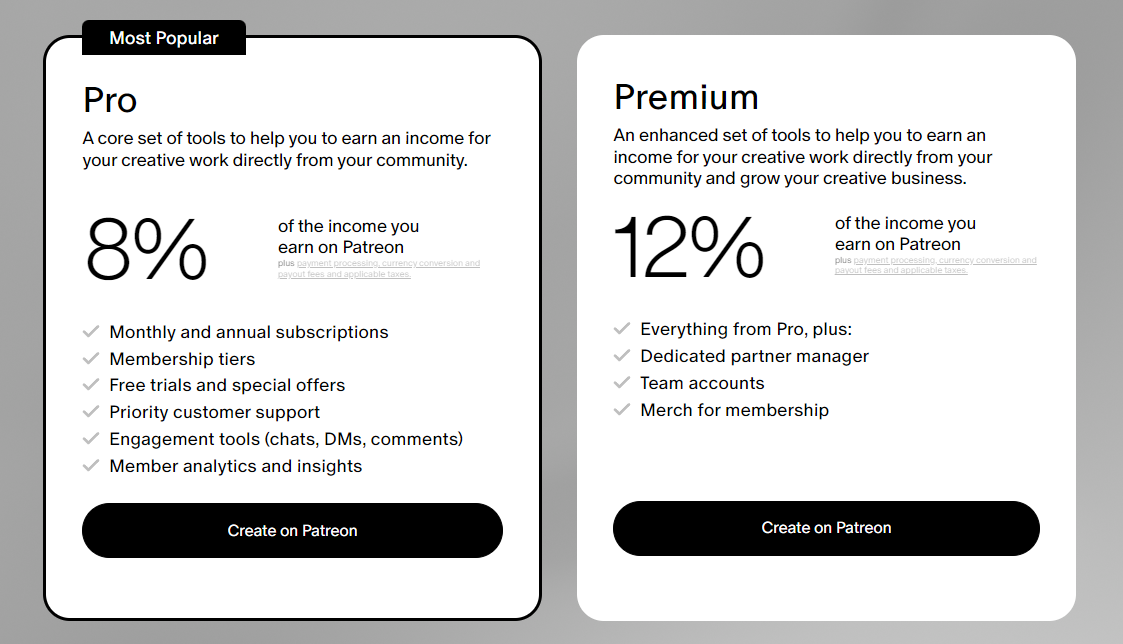
One of the biggest things that creators on Patreon take issue with is the platform’s fee schedule. You’re only there to earn money, but as the above image shows, Patreon takes a very sizable chunk of that cash out of your paycheck before you ever see the rest.
The 8% fee charged by the basic “Pro” plan is extremely steep for a starter package, and if you want to add merch sales to your income statement and have a partner manager, you need to go up to 12%. That’s not even all—the small print points out that’s 8 or 12 percent PLUS payment processing, taxes, currency conversion and payout fees.
That’s a huge chunk of your revenue that you’re losing out on if you stick with Patreon.
#2. Marketing and Discoverability
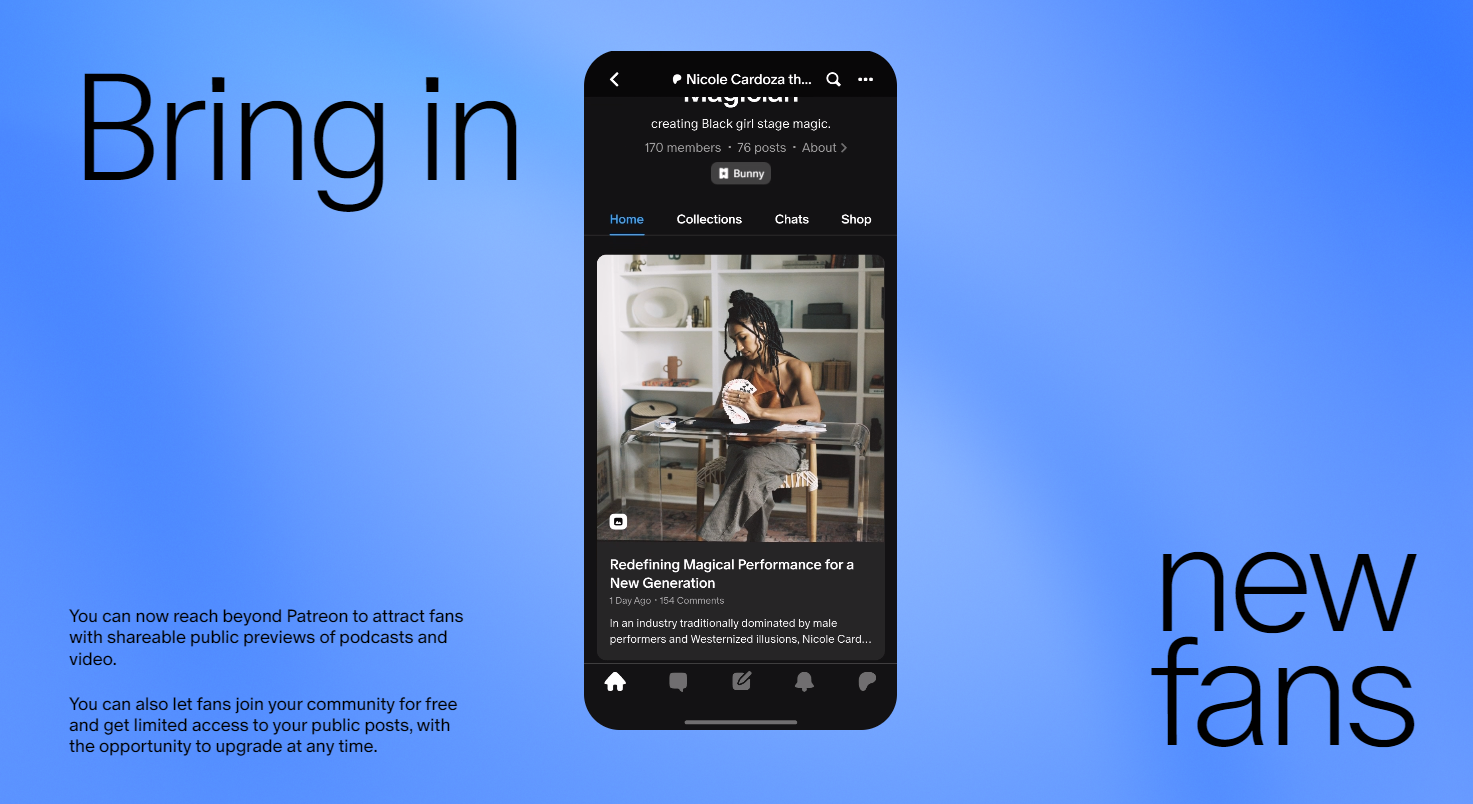
Patreon is an innovative platform and definitely built on its first-mover advantage, but like many trailblazers is happy to leverage its reputation rather than catering to customers first and foremost. One of the main areas where Patreon lets creators down in this regard is marketing, since it offers almost no advanced marketing tools to help creators grow their audiences.
Shareable public previews and free content is just about as far as Patreon goes in terms of marketing, and that just doesn’t cut it when you look at the options that other subscription management platforms offer. You should be able to do a whole lot more when it comes to audience-building, but it’s not possible with Patreon.
Discoverability is also part of that challenge. With Patreon, consumers have a search bar and a few categories to look at, but that’s about it. As a creator, you’d hope that your platform pushes your content a little more aggressively, since it’s mutually beneficial when you get more sign-ups from the platform itself.
#3. Payment and Payment Processing
Patreon has on occasion had issues with payment processing leading to delays and declined payments, which can be a problem both for you as a creator as well as your customers. Billing complaints can be extremely damaging for a small business–which your podcast probably is–and it can really hurt when your payments don’t clear when you expect them to.
As such, many creators need a platform that simply does payments better—as in, processes them more reliably, makes payments on time, and accepts payments in more currencies and more countries than Patreon does. Every geography the platform doesn’t operate in is an entire market of listeners you’re giving up.
#4. Alternate Payment Options
Another area Patreon falls short in is going beyond the subscription model. While it’s true that subscriptions are the meat and bones of Patreon as a platform, simply allowing one-time payments would allow you as a creator to unlock many more opportunities for revenue such as donations or the sale of one-off products or content.
As such, you’re quite limited when it comes to what you can use Patreon for and how you can monetize your content with them. Patreon may be one of the most recognizable names in the space, but as a creator, you need more!
Why Whop is the Best Patreon Alternative
Here’s a list of top Patreon alternatives if you want to start shopping around, but we’ll cut to the chase—spoiler alert, but we think Whop is the best choice when it comes to ensuring that your needs as a creator are met.
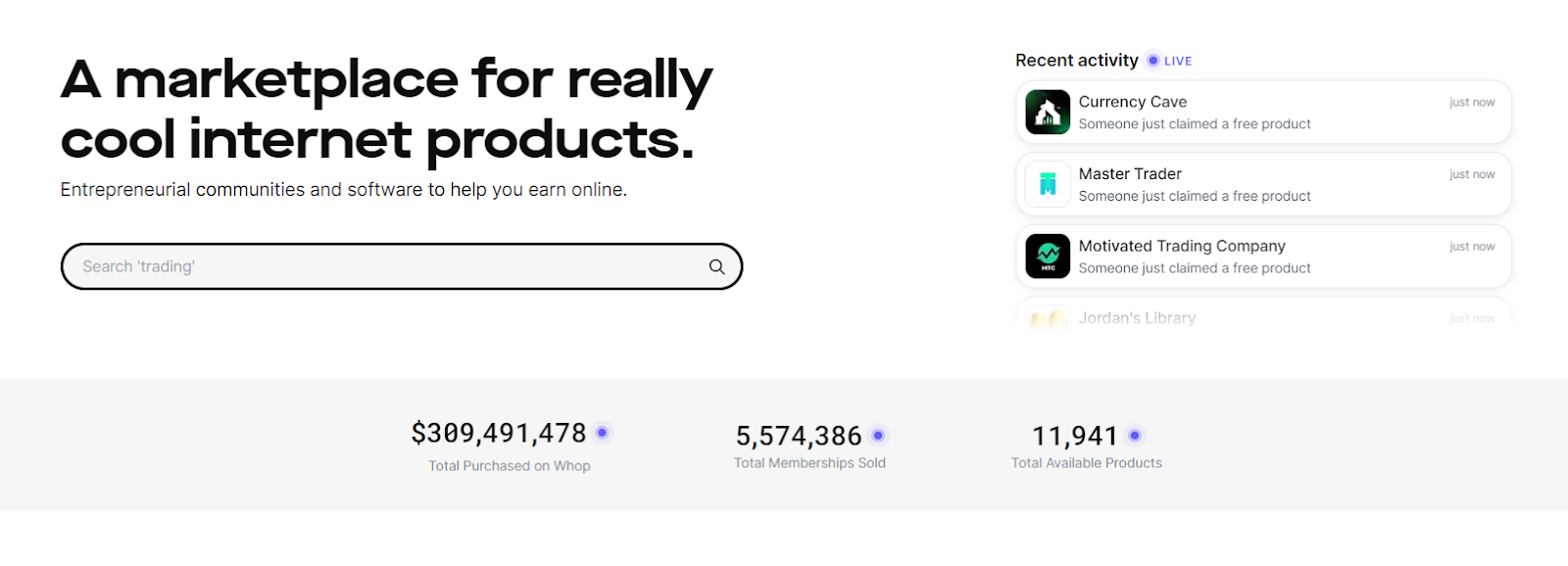
Whop is already home to thousands of creators, and has sold over 5.5 million memberships. That in itself shows you that Whop is a viable alternative to Patreon in its own niche, but things go a lot further than that—Whop also has a full-fledged digital marketplace, allowing creators to list just about any sort of complimentary digital product.
So, how does Whop compare with Patreon? Let’s take a quick look at several key areas, starting with one of the most crucial.
#1. Whop has Lower Transaction Fees than Patreon
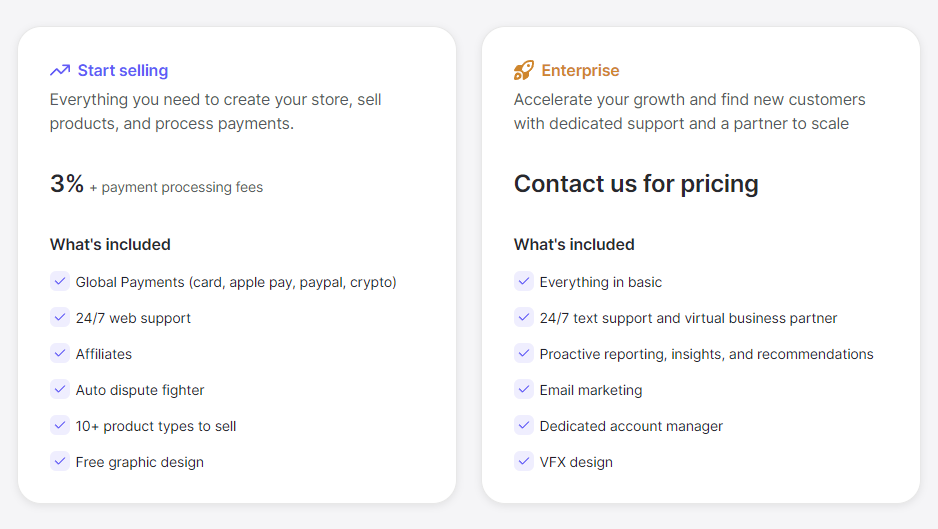
3% versus 8%. ‘Nuff said? Probably, but it can’t be understated how big this one is. Whop takes a far, far smaller bite out of your payments than Patreon does, and in fact compares favorably to just about every Patreon alternative on the market. It’s your hard-earned revenue, so Whop takes as little of it as possible!
#2. Whop Offers Better Marketing Tools and Discoverability
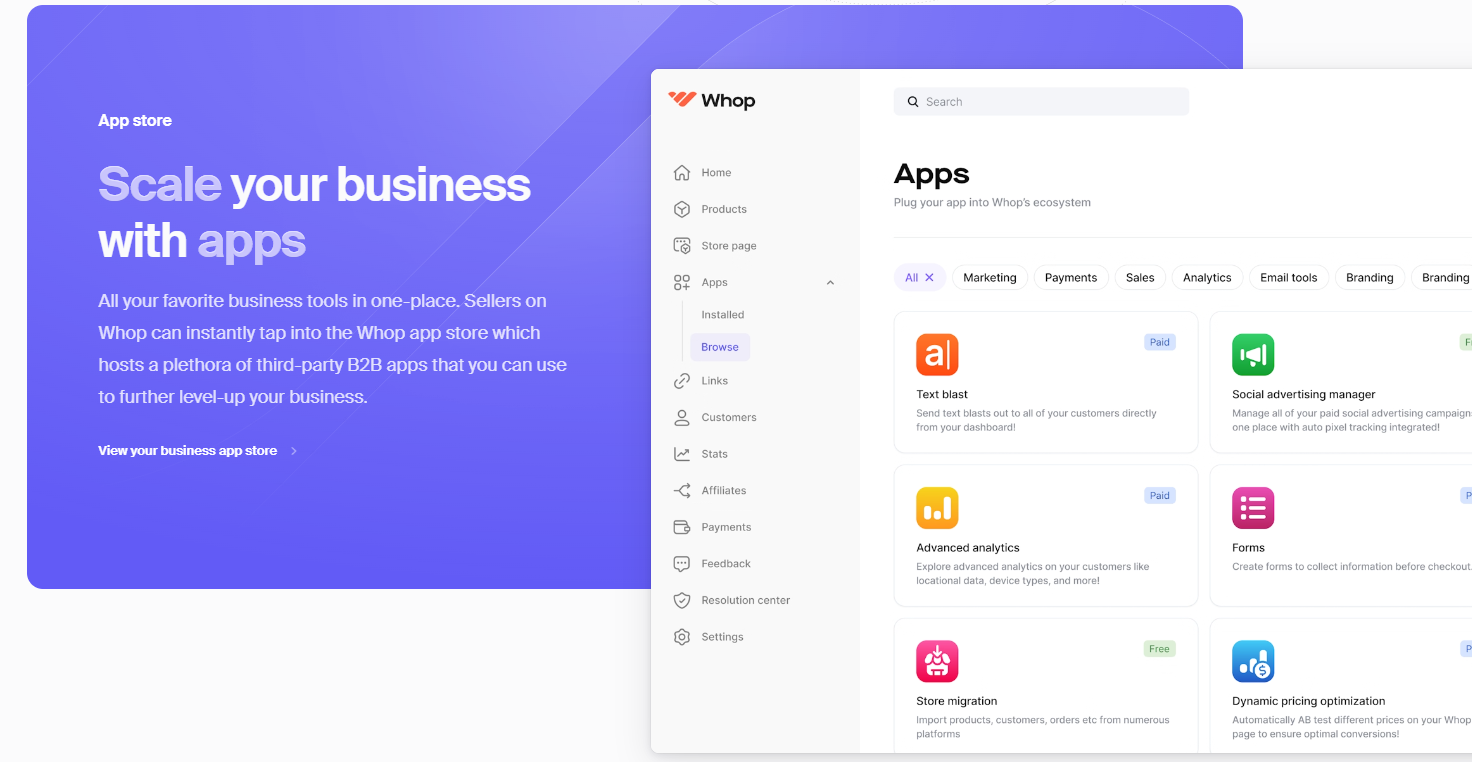
Whop takes marketing very seriously, and knows that you can use as much support as possible in building your brand and expanding your audience. You can do all of that from your Whop Business Dashboard, too, allowing you to manage your podcast’s marketing from one convenient place.
There are advantages in terms of discoverability too, and Whop’s digital marketplace has millions of monthly active users. Thanks to how Whop does things, you’ll be seen a lot more on the platform than you would be on Patreon.
#3. Whop Does Payments Just Right
Whop is an excellent payment processor, combining a powerful gateway built atop Stripe’s tried and tested security with an unmatched suite of features as well as Merchant of Record services.
Whop allows you to take payments from customers in well over a hundred countries using all of their local currencies, and your listeners can even use cryptocurrency via Whop’s ETH gateway and the fact that you can link your Whop account with a blockchain wallet.
On top of that, Whop’s customer service is second to none—with a satisfaction rate of over 97% and response time of just 3 minutes, your customers are in extremely good hands if they have any problems related to products or payments with Whop.
#4. Whop Lets You Sell Any Digital Product
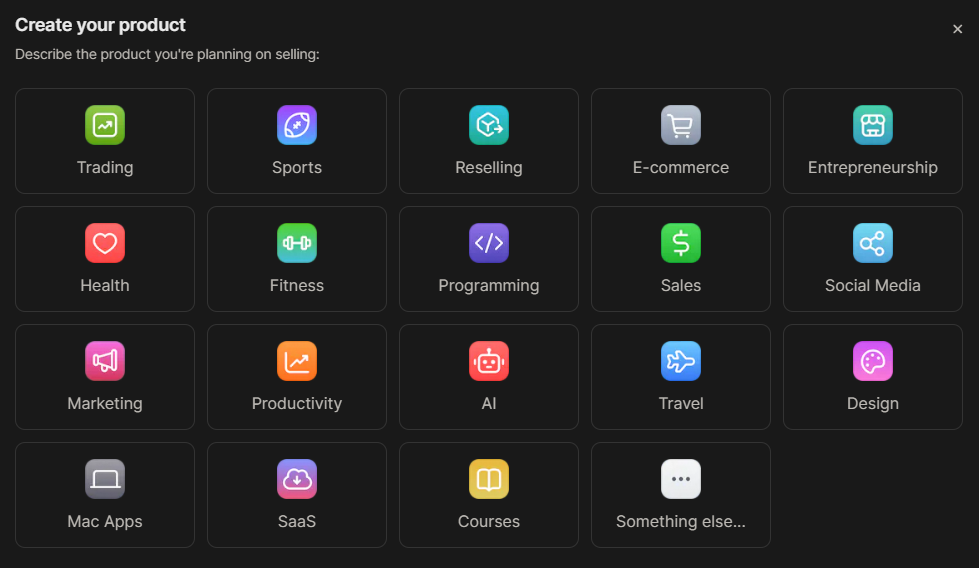
We’ve already mentioned that Patreon tends to struggle when one-off payments come into the picture. While it’s possible to open up a digital product store with Patreon, Whop does this with zero limitations—whatever digital product you can think of to complement your podcast, you can sell it via your Whop.
Today, there are over 11,900 digital products listen on Whop. Some of them are memberships, but you can sell lots more, from courses and eBooks all the way to community access, private web pages, trading indicators, and even bots.
#5. Whop Gives You Social Proof
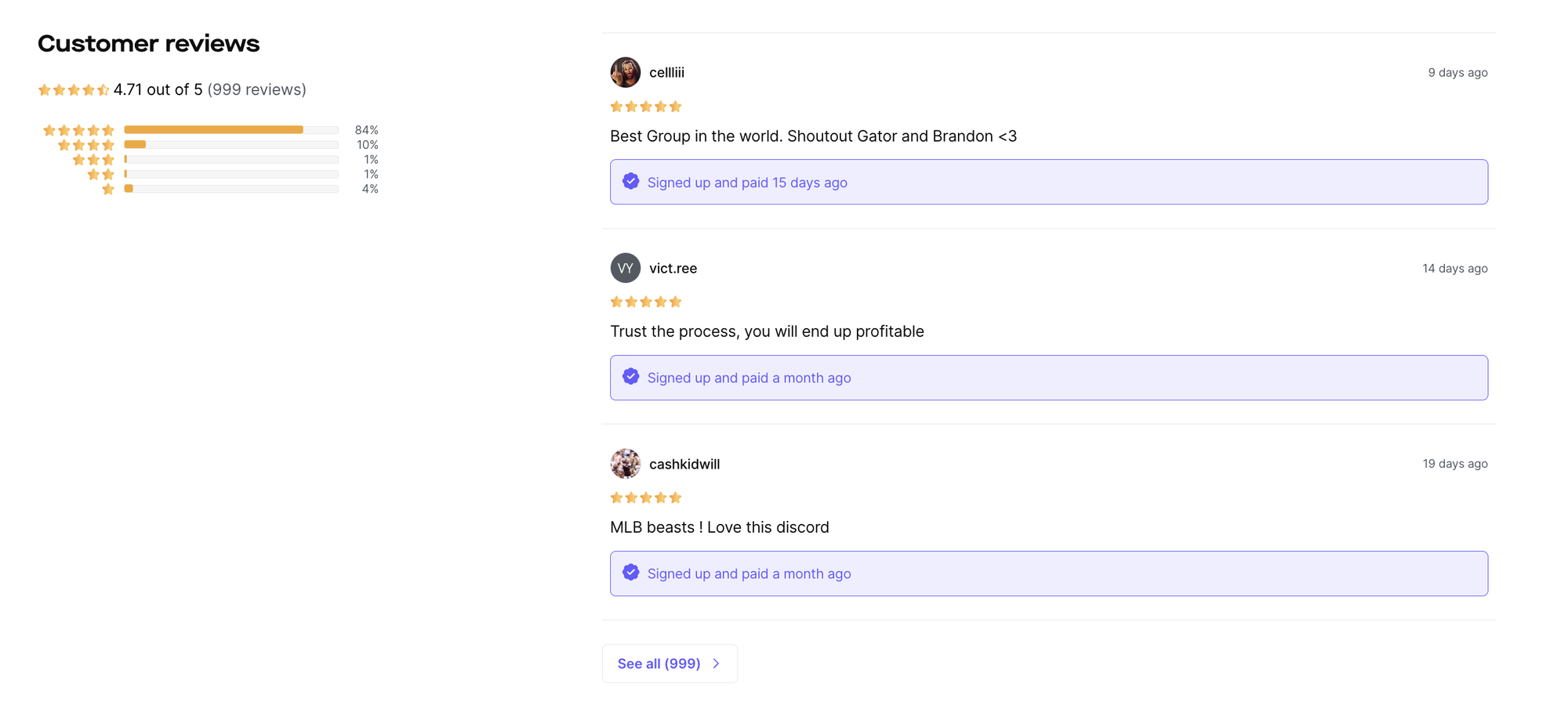
Patreon doesn’t really give you any sort of social proof system since discoverability isn’t really a priority for the platform—not many Patreon users browse for new creators and then pay for them right away.
On Whop, discoverability is huge, and people who come across your Whop page can get a quick idea of whether to splurge on your stuff right then and there by checking out your review score and what your existing listeners have to say about you!
Have Other Creators Moved to Whop?
Plenty, and Whop is getting more converts every day. Making the switch across to Whop can help your podcasting business from both ends, streamlining your business processes, analytics and payments while also unlocking more opportunities in terms of products and revenues as well as the discoverability factor of the Whop marketplace.
TridentDFS, an established Patreon seller, made the switch from Patreon to Whop in February 2023. Their marketing efforts have gone to another level thanks to being able to launch promo codes and an affiliate program directly through Whop, and they saw a 15% boost in membership through marketplace discoverability alone. Read the full story here!
Monetize Your Podcast with Whop!
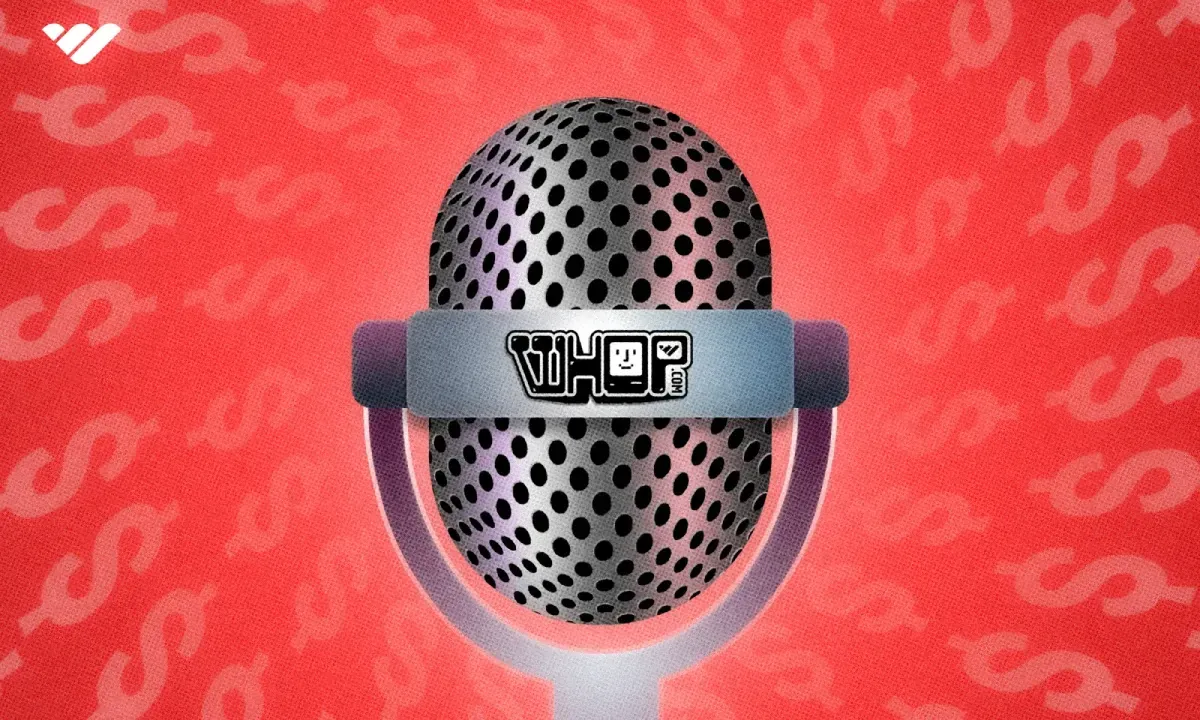
Patreon is a top platform for monetizing various forms of content including podcasts, but it’s nowhere near perfect. It falls short in several ways, blocking off the expansion of your brand in terms of marketing while also charging you an arm and a leg in the form of extremely high transaction fees.
So, check out Whop instead! Whop can help you take your podcasting business to the next level thanks to a robust suite of marketing tools, outstanding customer service, rock-solid payment processing and MoR services, and the ability to complete digital fulfillment for just about any digital product you think will complement your podcast.
If you want to keep your podcast growing without closing off any monetization or revenue opportunities, all you need to do is visit Whop today.
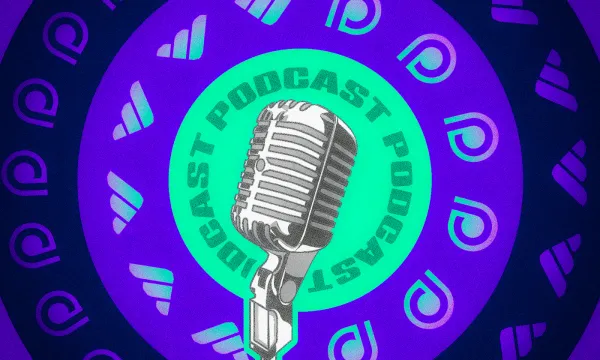

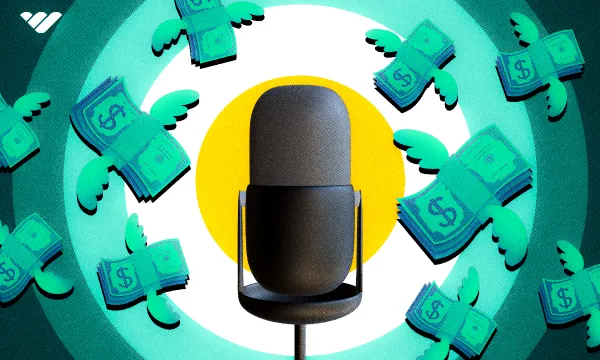
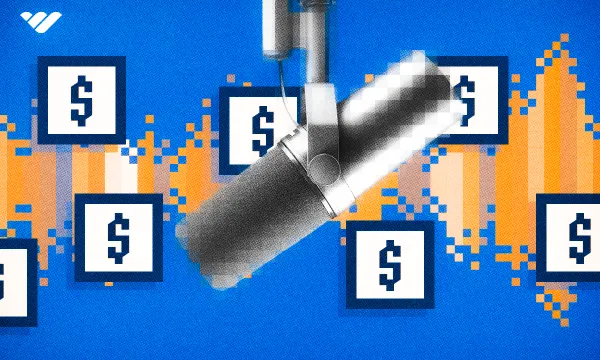
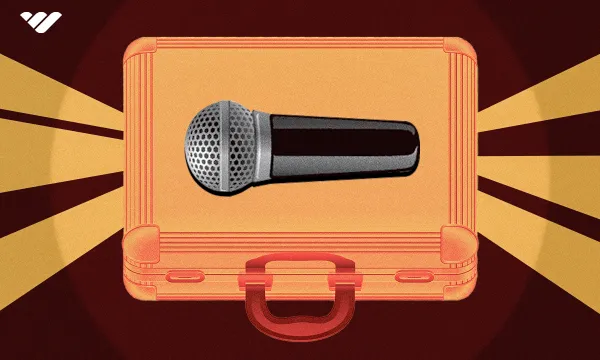
![How to Start a Podcast: Step-by-Step Guide [2024]](/blog/content/images/size/w600/2024/07/How-to-start-a-podcast.webp)